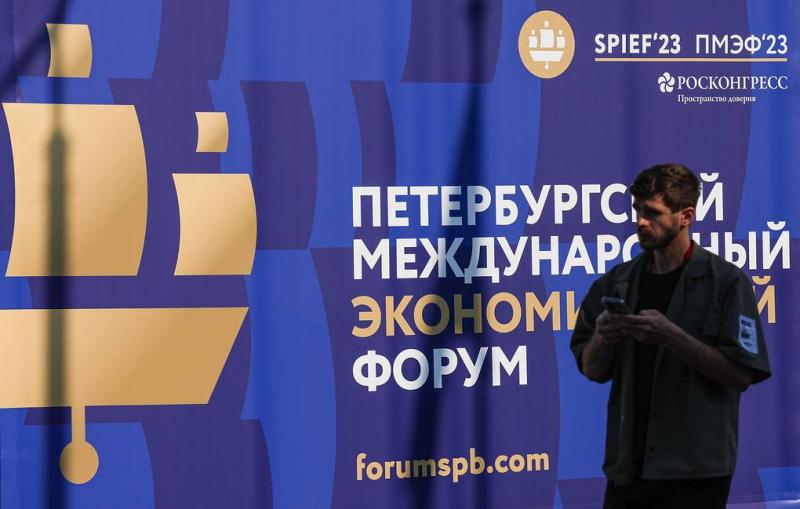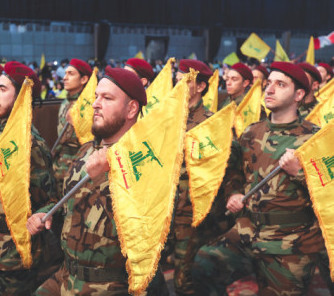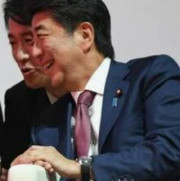
© Sergey Bobylev/TASS
Top stories from the Russian press on Thursday, June 15th, prepared by TASS
Russia hosts global visitors as SPIEF 2023 kicks off; Moscow boosts North African ties with Algerian president’s state visit; and Blinken belatedly goes to China. These stories topped Thursday’s newspaper headlines across Russia.
Izvestia: International Economic Forum kicks off in St. Petersburg
The 26th St. Petersburg International Economic Forum (SPIEF) has begun. Russia has been living in a new reality for the past year-and-a-half and the critical task now is laying a firm foundation for the country’s economic sovereignty. This year’s SPIEF is dedicated to such issues as well as to working together with friendly countries. Today, it has already become clear that Russia’s turn toward the East and South is here to stay.
"SPIEF is the leading venue for business discussions in Russia. The emergence of a large number of [Forum] sessions and events dedicated to Arctic themes demonstrates the growing global significance and economic role of the Arctic region," notes Arkhangelsk Region Governor Alexander Tsybulsky.
"Representatives of the business community from Russia and abroad are coming to St. Petersburg to find out first-hand where our economy is headed," says Svetlana Chupsheva, head of the Agency of Strategic Initiatives (ASI) non-commercial organization. She told Izvestia that SPIEF attendees are seeking to gain an understanding of which markets are opening up and which products may be in demand.
"For our part, we see an interest in Russian products and services, in the fields of technology, education and medicine, in Middle Eastern, Central Asian and CIS markets," she said, noting that the ASI maintains working relationships with the countries in these regions and is ready to assist Russian companies in establishing new contacts and production chains in these markets.
Oleg Vorobyov of the Delovaya Rossiya (Business Russia) Association noted that, currently, SPIEF represents collaboration between business circles and the political sphere. According to him, the venue provides an opportunity to engage the global community with the Russian government’s agenda as well as to integrate contemporary trends in international infrastructure with the domestic economy.
The expert notes that the prevailing orientation toward Asian markets is currently being showcased at the Forum like never before. In Vorobyov’s opinion, since its inception SPIEF has established its rightful place as one of the top-ranked global economic forums.
Kommersant: Russia gains outpost in North Africa
Algerian President Abdelmadjid Tebboune is paying a state visit to Russia. It will culminate in the signing of a bilateral document on the "expanded strategic partnership" between the two countries. Against the backdrop of sanctions pressure on Russia, Algiers has been showing an interest in working more closely with Moscow and other leading non-Western players, and has confirmed its readiness to join the BRICS group as early as this year. In this situation, Algeria could become Russia’s outpost in North Africa and a partner in the global gas market.
Weighing the prospects for Russian-Algerian cooperation, Stanislav Mitrakhovich, an expert at the Financial University and the National Energy Security Fund, named the field of energy as one of the top priority areas for joint initiatives.
"Algeria is one of the largest gas suppliers to the EU, and European politicians have been trying to convince this Arab country to increase gas supplies. However, domestic consumption there is growing and increased production demands large-scale investments. Algeria will increase LNG [liquified natural gas] supplies but the situation is more complicated with pipeline exports: Algeria is not happy with Spain’s position in the Western Sahara conflict, where Madrid supports Morocco. So, the gas pipeline from Algeria to Spain via Morocco has ceased to function as an export route to Europe; only an underwater pipeline from Algeria to Europe remains," the expert told Kommersant.
"Under current conditions, Russia could potentially offer Algeria, if not complete market sharing, at least assistance in coordinating issues concerning priority export destinations and counteracting attempts by Western countries to introduce gas price limit mechanisms, as well as in fighting discrimination by [Green-oriented] European politicians against gas as an energy resource," he concluded, adding that "Russia has proposals for Algeria on nuclear energy and on agriculture. Additionally, Russia, and previously the USSR, supported Algeria precisely on the sensitive issue of Western Sahara."
Izvestia: Why Blinken is heading to China now after previous delays
US Secretary of State Antony Blinken will visit China on June 18. The trip has been "delayed" for several months. Initially, the top US diplomat was expected in Beijing in February, but the visit was canceled over the incident involving a stray Chinese weather balloon that the Americans shot down after taking it for a spy aircraft. Since then, the litany of thorny issues between the US and China has only snowballed. Recently, the Wall Street Journal reported that the Chinese were planning to spy on the US mainland from Cuba. Although Havana and Beijing immediately refuted this information, such reports do nothing toward improving China-US relations.
According to Alexander Lomanov, deputy director of the Russian Academy of Sciences’ Primakov Institute of World Economy and International Relations (IMEMO RAS), achieving a fundamental improvement in China-US ties is not possible. Above all, this is because the US has adopted a course toward containing China and is not ready to make any concessions whatsoever. For its part, China, according to the expert, is already firmly convinced that the US is an unreliable partner that does not intend to honor its previous promises, such as backing away from its political support for Taiwan. In this situation, any new agreements or US promises would not mean much to the Chinese.
"So, the most that can be expected is that Antony Blinken’s visit to China will help put the brakes on any further deterioration in the China-US relationship for a certain period of time - in the best-case scenario, until the end of this year," the expert told Izvestia.
The US will hold a presidential election next year. Given that the calls for containing and countering China become louder and louder with each election cycle, one should not expect any serious improvements in the bilateral relationship in 2024, when all American politicians will feel compelled to express their disapproval of China in various ways and to varying degrees, Lomanov concluded.
Vedomosti: How Egypt’s accession would change BRICS
"Egypt has submitted its application to join the BRICS group because one of the initiatives that BRICS is currently pursuing is to shift trade to alternative currencies, be it national currencies or a new common currency. Egypt is very much interested in that," Russian Ambassador to Cairo Georgy Borisenko said in an interview with TASS on June 14. Later, he confirmed that Moscow supported Egypt’s application to join BRICS.
For Egypt, membership in BRICS is linked to hopes for attracting major investment, given the country’s deficits both on the budgetary side and in terms of foreign currency in general, says Andrey Kochetkov, a leading analyst at Otkritie Investment. According to him, Cairo expects that entering BRICS would give the Egyptian economy access to Chinese investment while helping to increase the volume of investments from traditional partner Saudi Arabia as well as Russia, while the bloc’s potential new common currency could facilitate this process. That said, the BRICS group would in turn get the Suez Canal, a key element in logistics routes for global trade, as an asset, the expert says.
BRICS would give Cairo a new opportunity to promote its economic interests among members of the alliance, says Ivan Bocharov, a program coordinator at the Russian International Affairs Council. Egypt will also attempt to establish itself internationally as a key regional player, the expert thinks.
Andrey Chuprygin, senior instructor in the School of Asian Studies at the Higher School of Economics (HSE University), thinks that Egypt’s interest in joining the bloc is a sign of weakening US influence in the Middle East and North Africa. Arab elites have ceased to perceive Washington as a key guarantor of regional security, while the Americans themselves are not particularly willing to play this role given their reduced dependency on the region’s energy products. According to the expert, Arab countries must "reinvent" their global positioning. "Over two decades, BRICS has gained serious authority worldwide. It is an alternative venue for transmitting its interests to the rest of the world," the expert thinks. In his opinion, Egypt, the trendsetter for the Arab world, may inspire other countries to join the group.
According to Chuprygin, the expansion of BRICS will also provide new opportunities for Moscow to promote its political and economic interests, including the export of food and engineering products.
Kommersant: US uranium purchases from Russia see one-quarter drop
In 2022, the US reduced its purchases of uranium raw materials from Russia by 24% year on year to 4.78 bln pounds in a U3O8 equivalent. According to analysts, this could be related to a sharp price hike and the specifics of unloading schedules on long-term contracts. The uranium prices in 2022 grew to their maximum level since 2016, forcing US buyers to cut overall purchases by 13%. Russia remains the leader in providing uranium enrichment services to US nuclear power plants. Due to geopolitical risks, however, Western buyers are trying to move away from Russian supplies, a process that is hindered, however, by the existing overload on processing capacities.
Among all stages of the nuclear fuel cycle, the greatest interest is displayed in services for conversion and enrichment due to geopolitics, Seytzhan Zhanybekov, head of Kazatomprom’s marketing department, said in March. Kazatomprom accounts for 42% of global uranium production. He noted that despite the fact that no sanctions were introduced against the Russian nuclear fuel cycle, some energy companies were working on finding new suppliers for these services.
Yerzhan Mukanov, Kazatomprom’s board chairman, noted that more energy companies were willing to take on long-term obligations within the framework of contracts with Western partners. In 2022, long-term contracts were concluded for almost 114 mln pounds of U3O8, which is the highest figure since 2012. That said, the average long-term contact price increased to $52 per pound in 2022.









